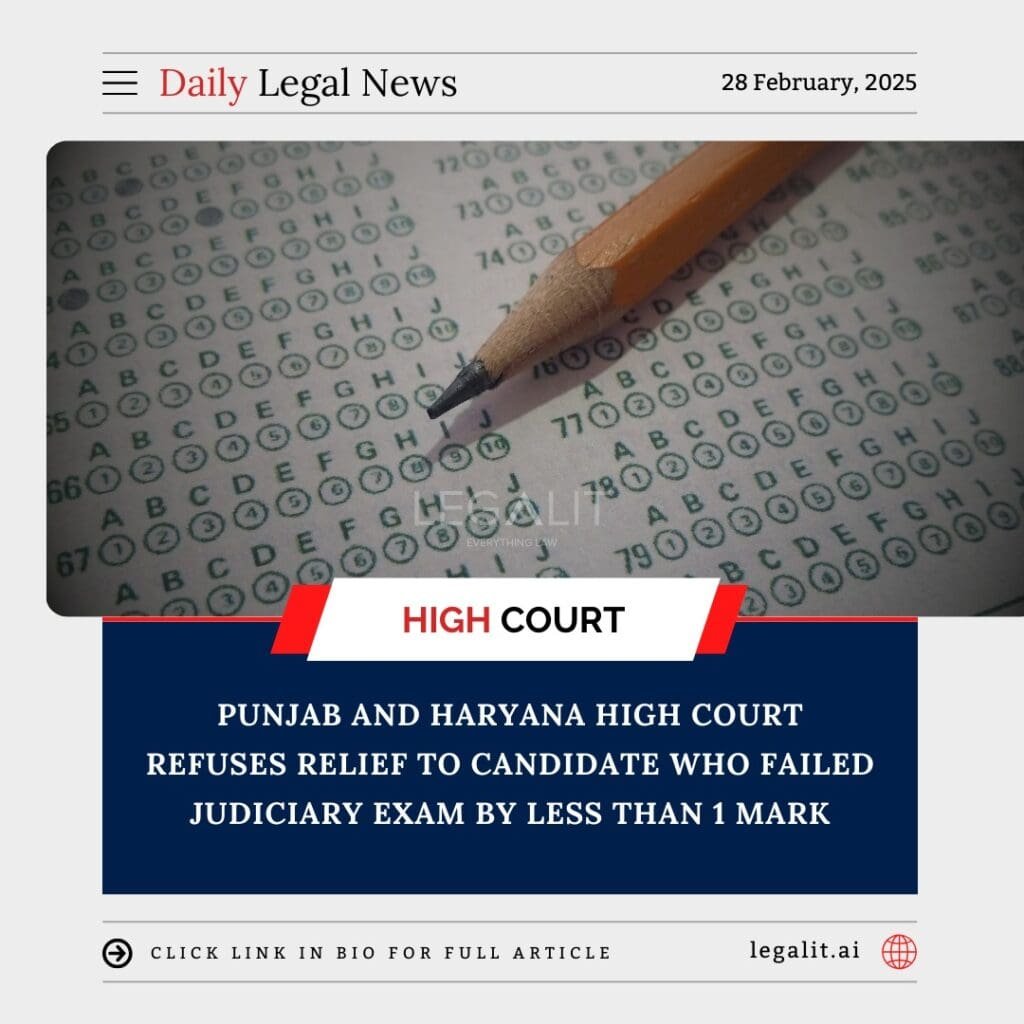
Background
The Punjab and Haryana High Court has dismissed a petition filed by a judicial services aspirant who narrowly missed the qualifying marks in the judiciary examination. The candidate had approached the court, seeking relief after falling short by less than one mark.
The petitioner argued that given the marginal difference, the court should exercise its discretionary power to grant relaxation. Additionally, they contended that minor errors in evaluation or unforeseen circumstances should not bar a deserving candidate from securing a judicial position.
Court’s Rationale
The High Court, while expressing sympathy for the candidate, refused to intervene, citing the following key reasons:
- Strict Adherence to Cut-Off Marks
- The court emphasized that recruitment examinations have clear-cut eligibility criteria, and judicial discretion cannot override established rules.
- It reiterated that even a marginal shortfall in marks cannot be overlooked, as doing so would compromise the integrity of the selection process.
- Judicial Interference in Competitive Exams
- The court referenced past Supreme Court judgments that caution against interference in competitive examinations unless there is a demonstrable error or violation of fundamental rights.
- It stated that allowing relaxation in one case could set an unwarranted precedent, leading to similar demands in future examinations.
- Fairness and Equal Treatment
- The judgment highlighted that other candidates who may have narrowly missed the cut-off did not approach the court, and granting relief to one individual would be unfair to others.
- Competitive exams are meant to ensure selection based on merit, and making exceptions could undermine the process.
- No Evidence of Evaluation Error
- The petitioner did not present any evidence of miscalculation or error in evaluation that could justify judicial intervention.
- The court clarified that unless there is a blatant mistake, judicial review cannot be used to alter examination results.
Existing Measures
- Candidates can seek re-evaluation or rechecking as per the examination rules, but courts have limited scope in modifying scores unless there is a procedural irregularity.
- Several Supreme Court precedents uphold the principle that courts should refrain from interfering in competitive exams unless gross injustice is evident.
- Selection processes for judicial services are designed to ensure merit-based recruitment, and authorities must adhere to predefined cut-off marks.
Conclusion
The Punjab and Haryana High Court’s decision reaffirms the principle that cut-off marks in competitive exams must be strictly followed. While the court acknowledged the petitioner’s disappointment, it held that exceptions cannot be made based on emotional grounds. This ruling reinforces the necessity of maintaining fairness and consistency in the judicial selection process.